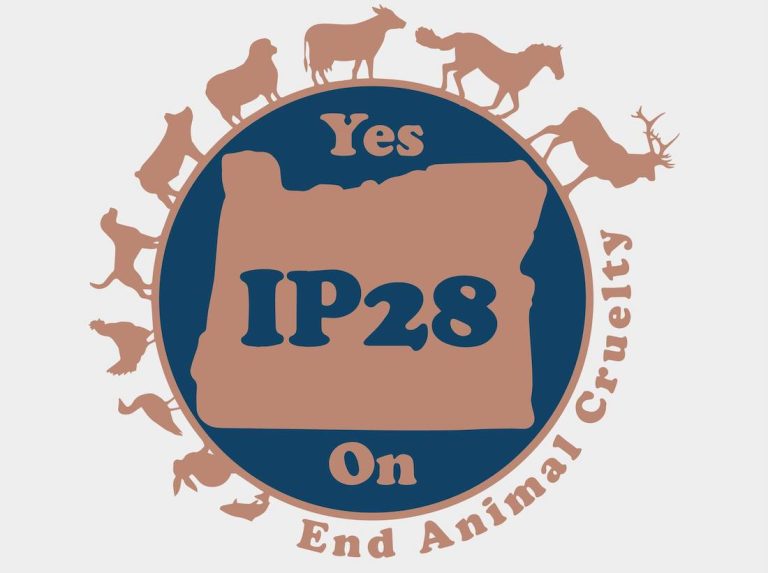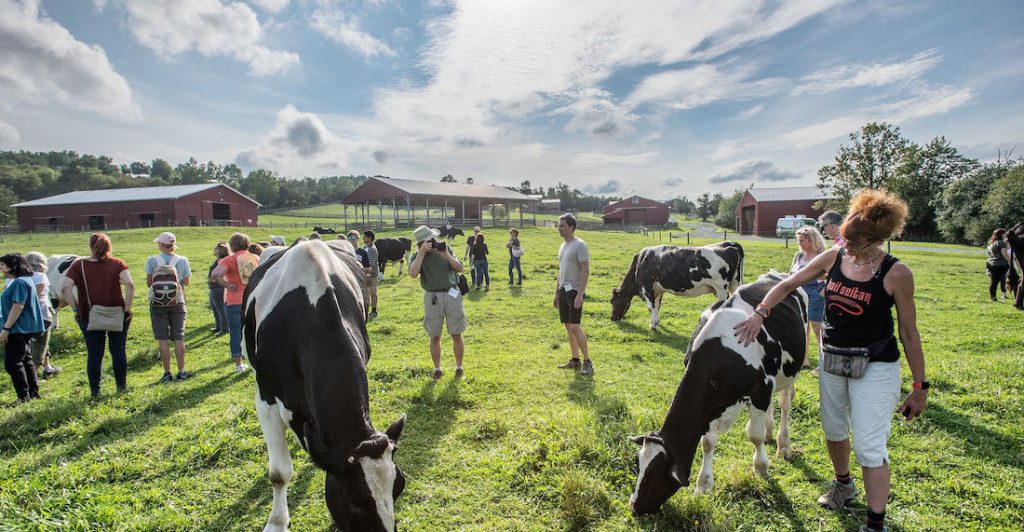
This would mean that animals on farms, in research labs, redoes, zoos, and in the wild, could no longer be legally exploited and would be protected by law.
In a world increasingly aware of the rights and well-being of animals, significant legislation is gaining momentum in the state of Oregon. Oregon is one of 18 states in the U.S. that allows direct democracy, meaning any individual can propose laws or bills to be passed or adopted by the state government. This process requires gathering a sufficient number of signatures to get the initiative on the ballot, where it can then be adopted or rejected by voters in the next general election.
One initiative, IP28 is diligently collecting signatures to appear on the 2026 ballot and could change the landscape of animal rights forever. Currently, only cats and dogs, animals considered to be ‘companions’ are protected by law. This initiative, known as IP28, seeks to change that. If IP28 passes, it would remove existing exemptions and criminalize the injuring, killing, forced impregnation, and masturbation of all animals within the state.
This would mean that animals on farms, in research labs, redoes, zoos, and in the wild, could no longer be legally exploited and would be protected by law. By recognizing the personhood of all animals, Oregon could pave the way for a universal bill of animal rights, ultimately ending all forms of animal exploitation worldwide. Scientific research and evidence irrefutably prove that animals are sentient, and justice demands that all sentient beings be protected from exploitation and oppression.

IP28 also proposes the establishment of a Humane Transition Fund. This fund would offer grants to individuals whose livelihoods depend on exploiting animals, providing financial assistance for lost income, job retraining, and support for conservation and rewilding efforts. This initiative ensures that the transition to an exploitation-free state is not only ethical but also economically viable.
The Humane Transition Fund will be administered by a council consisting of representatives from the Oregon Department of Agriculture, Oregon Department of Fish and Wildlife, Office of Tribal Affairs, and Oregon Department of Human Services, among other community members who would be impacted by the implementation of IP28.

For those concerned about meeting their need for food, Oregon is already producing far more food than needed to feed everyone and is a top-ranking producer of many fruits, nuts, and vegetables. Spaying and neutering, if administered as part of veterinary medicine, would still be legally protected under the law.
IP28 may likely be voted down, however just making it onto the ballot would be a significant victory, as it would bring the discussion of animal rights more into the mainstream. Previous fights for justice through Oregon’s direct democracy have also taken more than one election. Voting rights for women spanned 42 years and appeared on the state’s ballot six times.
For those who are passionate about animal rights and want to make a difference, there are numerous ways to get involved in the campaign IP28 is currently seeking volunteers, paid petitioners, and donations to help gather the necessary signatures to get on the ballot. Registered voters in Oregon can also visit the official website to sign the initiative.
Visit yesonip28.org to learn more about this groundbreaking initiative and how you can contribute to a future where all animals live free from exploitation. Together, we can make this vision a reality.
Help End Animal Cruelty
Support The Cause